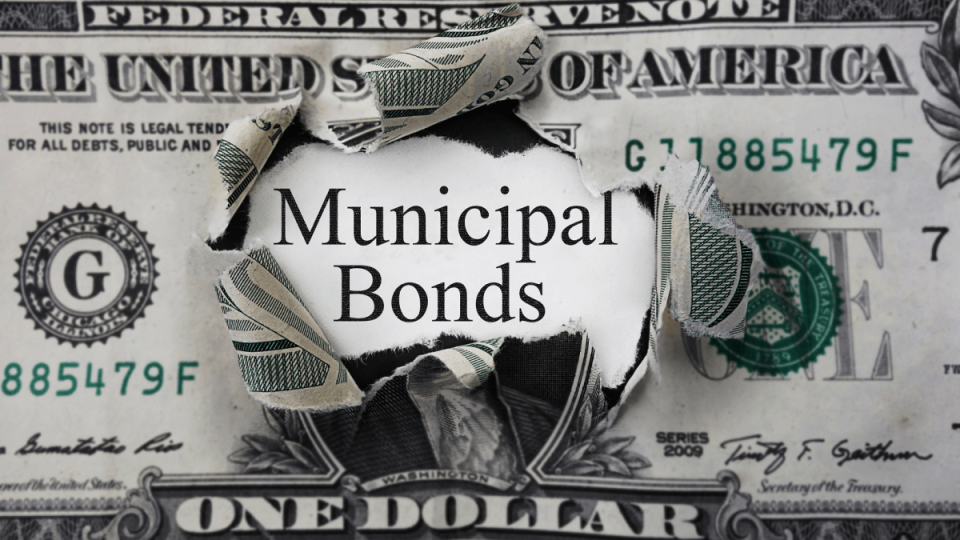If you’re thinking about using individual municipal bonds as a stable and easy source of funds, you might want to think again. While holding high-quality municipal bonds is generally low risk, selling them can be both expensive and complicated.
Unlike stocks, which can be traded without fees and with high liquidity, the municipal bond market is much less active. This means that trying to sell your municipal bonds could result in accepting significantly lower prices than their true market value.
The key takeaway is that if you’re incorporating individual municipal bonds into your investment strategy for tax-efficient income, it’s wisest to hold onto them until they reach maturity. Depending on these bonds for quick cash in emergencies or for significant expenses like buying a house is not recommended.
It’s also crucial to differentiate between owning individual municipal bonds and investing in a bond fund. The latter typically offers more liquidity but doesn’t have a set maturity date.
Considering Using Municipal Bond Sales for a Home Down Payment
As you get closer to buying a home, more of your down payment should be in cash or in low-risk investments like Treasury bills. When it’s time to purchase, you’ll usually need at least a 20% down payment to be competitive in the housing market.
Given today’s high home prices, a 20% down payment can represent a large amount of money. It’s risky to have this down payment tied up in volatile markets like the stock market. The more you’re stretching to make the down payment, the more conservatively you should invest these funds.
Some people might think about putting their down payment in individual municipal bonds instead of in cash or Treasuries, attracted by the tax benefits. Interest from municipal bonds is exempt from federal taxes and often from state taxes if the bonds are issued in your state. Thus, the higher your tax bracket, the more attractive municipal bonds become.
However, despite the possibility of higher after-tax returns, individual municipal bonds are not recommended for holding your down payment. They might be hard to sell, or you might have to sell them at a significant loss.
Before sharing my experience with selling municipal bonds, let’s look at why some might prefer them over Treasuries or other bonds. Consider the table below.
You might be choosing between a two-year Treasury bond yielding 4.91% or a two-year Aaa-rated municipal bond yielding 3.98%. If you’re in the 37% tax bracket, the effective yield of the Treasury bond, after federal taxes, would be 3.09%, since you have to pay federal income tax on the income from the bond but not state tax.
Since 3.09% is less than 3.98%, those in the 37% tax bracket might lean towards the municipal bond, assuming they hold it until maturity. Here, the break-even tax bracket is 19%, which doesn’t currently exist.
With tax brackets jumping from 12% to 22%, anyone in a 22% bracket or higher would see more benefit from a municipal bond, assuming they hold it to maturity.
Holding individual bonds to maturity shields you from potential capital losses if interest rates rise while you’re holding the bond.
Since the beginning of 2022, all types of bonds have been hit hard by rising inflation and interest rates. Therefore, now is not the ideal time to sell bonds.
The First Unexpected Issue with Holding Municipal Bonds
When I made a contingent offer on a house, I expected to fund about $400,000 of the purchase with municipal bonds I had held for over six years. Although I expected some losses from these bonds, they were needed to balance out gains from selling stocks.
To my surprise, about $200,000 worth of municipal bonds in my Citibank account couldn’t be sold! Despite attempts by my wealth manager over two weeks, we couldn’t find any buyers, even at discounted prices.
This created a big issue: how would I cover the $200,000 gap?
One reason not to depend on individual municipal bonds for liquidity: they might not be sellable.
If you can’t sell your bonds, it could complicate your house purchase contract and potentially lead to losing your earnest money deposit if you release financing contingencies before discovering the illiquidity of your bonds. Be cautious.
The Second Unexpected Issue with Holding Municipal Bonds
I then looked to sell municipal bonds in my Fidelity account. Expecting similar challenges, I reached out to a representative for help.
The process to sell bonds at Fidelity involved several steps, beginning with choosing the bond and placing a Sell order. Then, I had to look for a Bid Request.
Selling municipal bonds is cumbersome – here’s an example of a Bid request. Bid Requests aren’t immediate; it takes about an hour for the system to gauge the demand for the bond amount you’re trying to sell. You’re notified by text or email.

